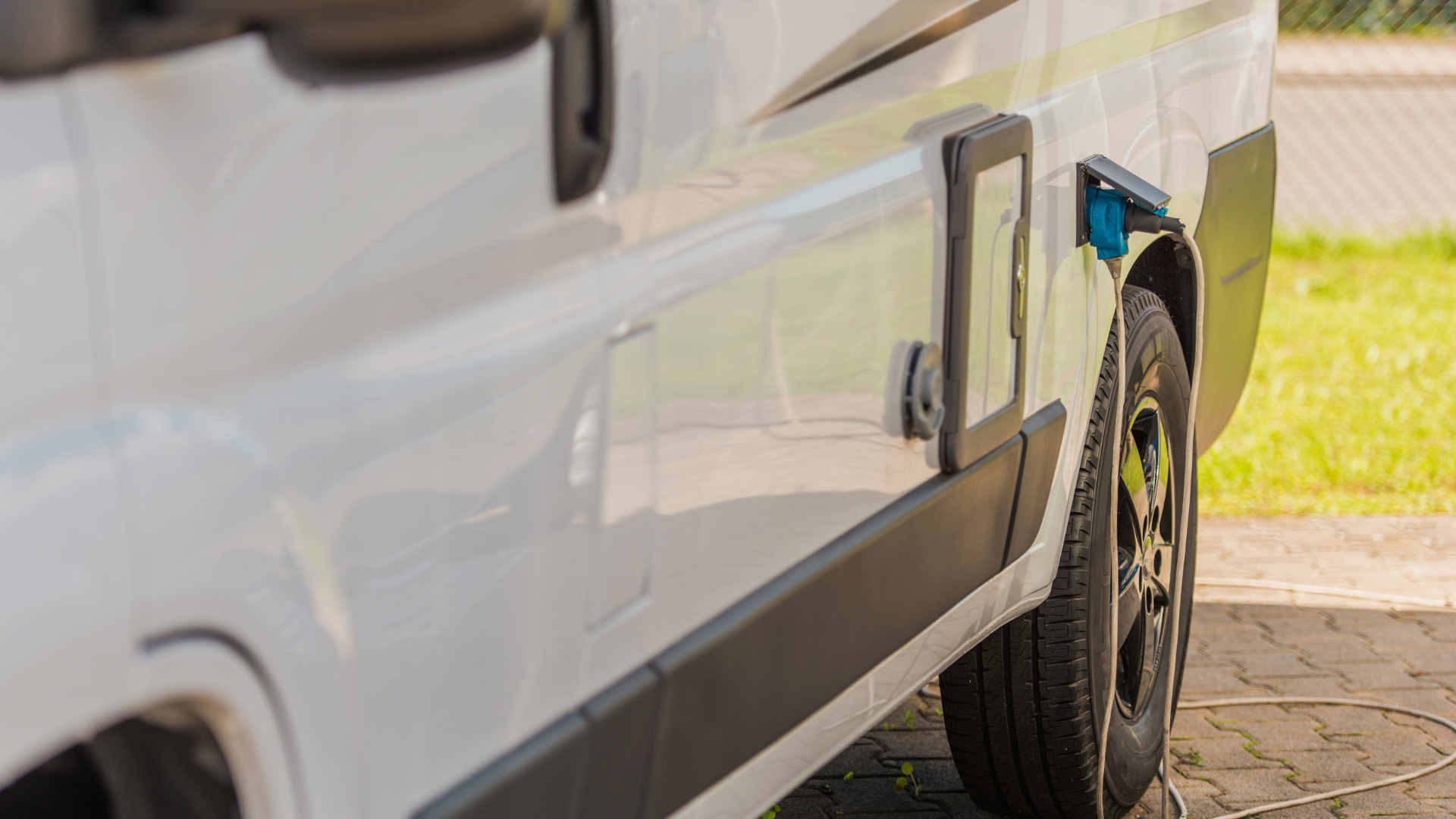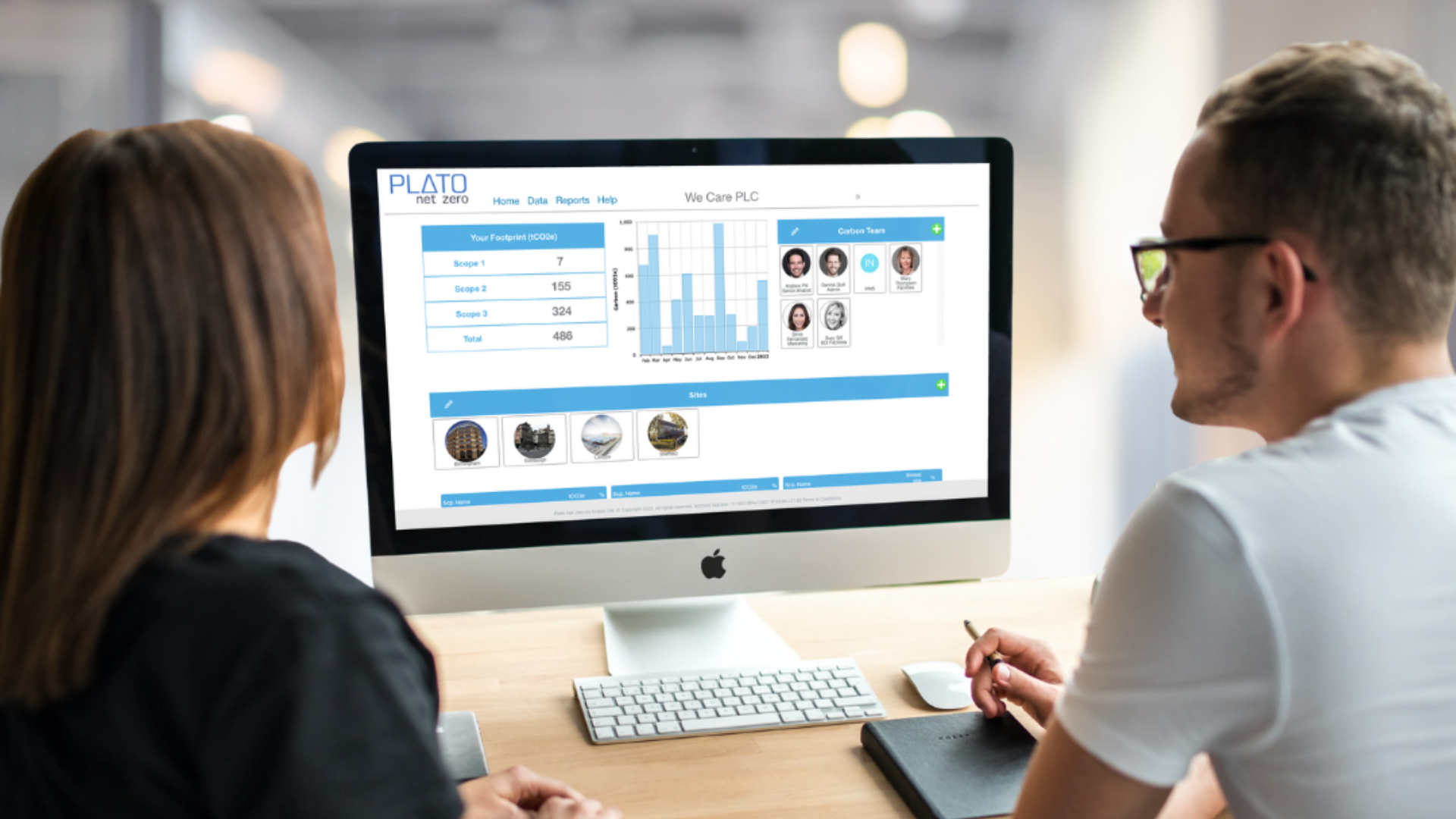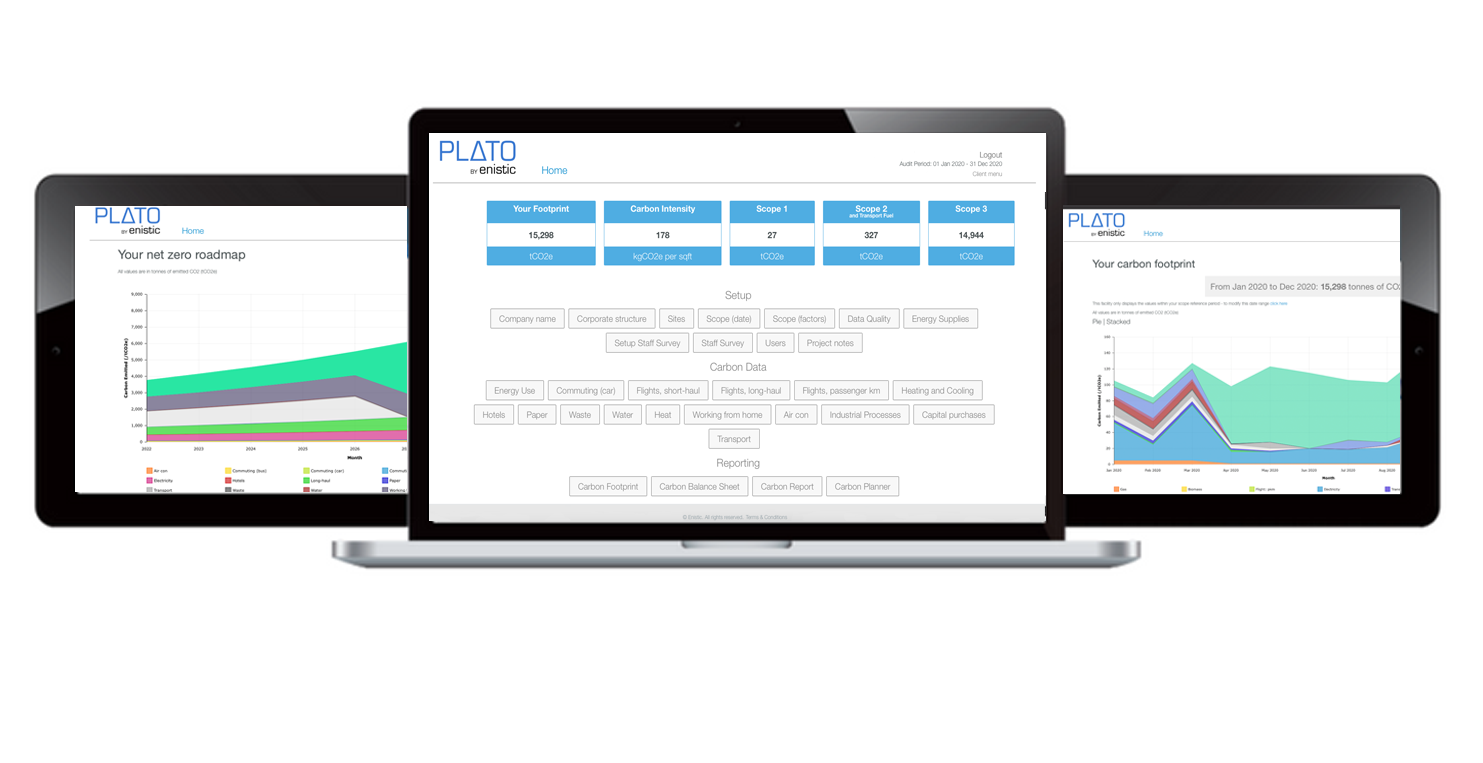Carbon Reduction Projects
The key to a sustainable future for your business is to make real changes that will trigger permanent change. Here at Enistic, we believe that the best way to achieve this is to implement carbon reduction projects that lead to making considerable carbon emissions reductions.
If you’re a supplier to the NHS, you’ll have very clear targets to hit as part of the NHS Net Zero Supplier Roadmap. Want to know more about the roadmap? Click here.
As you progress through your company’s sustainability journey, assessing your emissions and setting targets, you should be able to identify internal carbon reduction opportunities. This could range from switching to 100% renewable energy to tackling business travel emissions.
Let’s take a look at 5 carbon reduction projects that our Carbon Consultants recommend.
Project #1 – Switch to 100% renewable energy

Driven by the cost-competitiveness of renewables and growing calls for sustainability amongst investors and consumers, renewables have become an attractive source of energy for companies around the world. Given that electricity generation and use is one of the largest sources of greenhouse gas emissions, making sustainable energy decisions is a simple way to create a huge, positive impact.
A project like this would also send a message to the wider industry to avoid using electricity generated from fossil fuels. Consumers, investors, and most importantly, the NHS, are demanding this change more now than ever, so if your company is looking to win favour with stakeholders, it’s a no brainer. It’s also the right thing to do!
By switching to renewable energy, you’ll make it much easier to hit your carbon reduction targets, and you’ll be able to demonstrate to NHS Procurement teams that you’re making the right changes that target their priority areas.
Check out the ‘Applying net zero and social value in the procurement of NHS goods and services’ document for more information and guidance on setting your goals.
Project #2 – Tackling business travel emissions

Business travel can sometimes be the largest contributor to a company’s total carbon emissions. With the pandemic now behind us, many businesses have realised that there are far more efficient ways to meet. As well as this, it’s the perfect time to take advantage of the fact that many people are now used to alternatives. This can include making the most out of virtual meetings and changing your method of transport where possible (e.g train instead of plane).
Today’s remote meeting solutions are far more advanced than they used to be. Your team members/clients can share their screen in order to present and you can even record your meeting depending on its nature – one thing that we love about our virtual webinars is that we can record it and make it available for others online! Online meetings also remove the time and expense of travelling to business meetings.
What we now see quite often is companies introducing a flight ban for certain journey lengths. For example, if the journey that needs to be taken is less than 300 miles away, then an alternative form of travel must be taken.
If taking a flight is unavoidable, there are still actions that can be taken in order to reduce your carbon footprint. One action that can be taken is by prioritising airlines with fuel efficient fleets. A recent study by the London School of Economics looked at the average emissions per passenger km for major airlines, which included EasyJet and British Airways. It found that for each passenger on an EasyJet flight resulted in emissions of 75g of CO2 per passenger km. In comparison, British Airways emits 112g per passenger km.
Project #3 – Reduce environmental impact with the redesign of the product or service

This comes straight from the ‘Applying net zero and social value in the procurement of NHS goods and services’ document, published by NHS England. Many NHS Suppliers have lowered their carbon emissions by making significant changes to their product or service.
Changing the packaging design can reduce the impact that a product has on the environment. Redesigning your packaging can reduce your costs and ensure you comply with packaging regulations.
Manufacturers and product designers should use the design of product packaging and its ability to be minimised, reused or recycled as one of the key factors they consider when making decisions.
One way that this can be done is by assessing your packaging to check if there is an acceptable level of wastage and that you are not over-packaging your products. Many suppliers are able to reduce the level of packaging for their products, which in turn reduces the waste and emissions related to the product.
Project #4 – Increased use of Hybrid and Electric vehicles

Many suppliers overlook the emissions savings they could achieve by making changes to their transport fleets. Creating a sustainable fleet program is one of the best contributions that can be made to help reduce your impact on climate change.
Electric and hybrid cars are also cheaper to run: the cost of the electricity required to charge the car is around 40% less than the cost to use petrol or diesel for a similar sized vehicle driving the same distance. By introducing more electric vehicles into your fleet, you would be reducing your reliance on fossil fuels.
NHS Supply Chain has been working on building a more sustainable fleet themselves, so this target would be very much in line with their own expectations. The goal is to create a long-term carbon neutral fleet, with the new environmentally-friendly vehicles offering the lowest level of carbon emissions to date. Operating with lower emissions, which allow for a CO2 reduction of 2.1 tonnes per vehicle per year, the new fleet will help the NHS organisation meet its green targets.
Project #5 – Real-time carbon emissions monitoring

Often overlooked as a carbon reduction project, this level of insight will enable close monitoring of your emissions and help identify further areas for targeted reductions. This can help your organisation determine what exactly is doable in terms of making sustainable changes. When you see the data laid out, it’s also much easier to report on your progress and assess how much of a difference your current changes have made.
This will also make it much easier to report to the NHS with your carbon reduction plan. Want to know more about the reporting standards for NHS Suppliers? Click here.
Setting up data feeds with your suppliers is key to producing accurate data. This also applies to NHS Trusts. By keeping track of your own emissions, this makes it much easier for NHS Trusts to analyse their emissions and produce a precise carbon footprint.
How can we help?

With our carbon management platform, you can easily generate an accurate and real-time carbon footprint, as well as develop realistic Carbon Reduction Plans.
Our platform analyses and controls carbon and energy data in real-time across unlimited sites with unlimited user access. It facilitates the measurement, reporting, and management of an organisation’s carbon emissions.
It’s also the backbone of our carbon and energy management services. It allows our clients to much better understand when and where their carbon consumption is going with its easy to interpret dashboards and reports. It enables carbon and energy waste to be identified and to better manage consumption, leading to average savings of 28%.
You can also save time by uploading your data straight onto the platform, or let us worry about the data collection for you. Once your data is uploaded, you can generate various reports, including the all-important PPN 06/21 report. Once our experts have reviewed the report, you can download it in an editable format, so you can customise it and share it with your colleagues.
We can help you with your Scope 1, 2 & 3 emissions, ensuring that you’re working up the ladder on the Sustainable Supplier Framework.
It’s all down to you and your needs. We understand that every supplier needs something different, which is why we adjust our platform to meet your needs.
The Ensitic Platform can be accessed anytime, anyplace, anywhere with your own personal and secure login.

Book a free consultation
Contact one of our Net-Zero experts today and book a free consultation to see how Enistic can help you set your Net Zero strategy. We will make the processing time and cost-effective. ensuring you move forward, informed, empowered, and confident that you have control.




